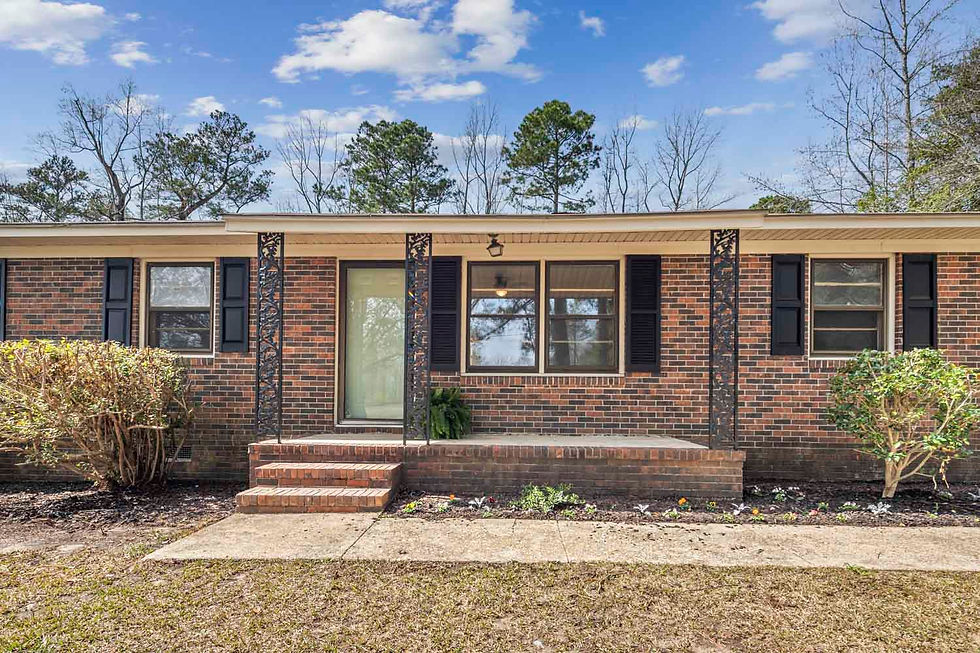🏡 What Inspections Should I Get Before Closing on a Home in North Carolina?
- Cassie Callahan
- Oct 28, 2025
- 3 min read
Buying a home is one of the biggest investments you’ll ever make — and inspections are your chance to make sure you know exactly what you’re buying. Whether you’re purchasing your first home, relocating to the Fort Bragg area, or adding to your investment portfolio, inspections protect you from costly surprises down the road.
Let’s break down the most important inspections to schedule before closing — and which ones might save you thousands in future repairs.

🔍 1. Home Inspection (General)
Purpose: To get an overall look at the condition of the home. Why it matters: This is your first line of defense against hidden issues like foundation cracks, faulty wiring, roof leaks, or plumbing problems. What’s included: Structural components, electrical systems, plumbing, roof, HVAC, and major appliances.
💡 Tip: If major issues are discovered, you can use the inspection report to negotiate repairs or credits before closing.
🕳️ 2. Termite & Pest Inspection
Purpose: To identify wood-destroying insects or damage.Why it matters: Termite infestations are common in North Carolina’s warm, humid climate — especially around Fayetteville, Hoke, and Harnett counties.Pro tip: Even if you don’t see visible signs of damage, always request a Wood-Destroying Insect Report (WDIR) from a licensed pest control company.
💧 3. Radon Inspection
Purpose: To test for radon gas, a naturally occurring, odorless gas that can cause health issues over time.Why it matters: Radon levels can vary widely across neighborhoods. If levels are elevated, mitigation systems are simple and relatively inexpensive to install.
🌊 4. Septic and Well Inspection (if applicable)
Purpose: To ensure the septic system and well water are functioning and safe.Why it matters: Many rural properties in Cumberland, Hoke, and Sampson counties rely on private systems. A failed septic system can cost $5,000–$15,000+ to replace.What’s checked: Tank integrity, drain field condition, and water quality (including bacteria, nitrates, and pH levels).
⚡ 5. HVAC Inspection
Purpose: To confirm the heating and cooling systems are in good working order.Why it matters: North Carolina summers are no joke — and replacing an HVAC unit can easily run $6,000–$10,000.Bonus: Request service records from the seller to see when filters were changed or the unit was last serviced.
🌩️ 6. Roof Inspection
Purpose: To assess the age, condition, and lifespan of the roof.Why it matters: A roof replacement is one of the most expensive home repairs. A professional roof inspection can reveal leaks, storm damage, or worn shingles that might not show up in a general inspection.
🏠 Optional Inspections (but often worth it)
Mold Inspection: Ideal for homes with musty odors or water damage.
Pool Inspection: If you’re purchasing a property with a pool, this ensures safety and mechanical integrity.
Asbestos/Lead Paint Testing: Recommended for homes built before 1978.
✅ Final Thoughts
Before closing, inspections aren’t just about finding problems — they’re about making informed decisions. Your inspection reports give you leverage to negotiate repairs or price adjustments and help you move forward with confidence.
If you’re buying in the Fort Bragg area, I work closely with trusted inspectors and contractors who understand our local housing conditions. I can help you schedule everything seamlessly during your due diligence period.
❓ Frequently Asked Questions
Q: Who pays for the inspections? Typically, the buyer pays for inspections during the due diligence period. However, certain repairs or re-inspections can be negotiated with the seller.
Q: When do inspections happen?Inspections usually occur right after your offer is accepted — during your due diligence period. The sooner they’re scheduled, the more time you’ll have to review and negotiate results.
Q: Can I attend the inspection?Absolutely — and you should! It’s a great opportunity to learn more about the home’s systems and maintenance needs directly from the inspector.
Q: What if the inspection reveals major issues?You can request repairs, negotiate a credit toward closing costs, or even walk away if the problems are too significant. Your contract and due diligence period protect your right to make that decision.
Q: Are inspections required by the lender?Not always, but certain loans (like VA or FHA) may require specific inspections — especially for water, septic, or pest concerns.

💬 Thinking of buying or selling in the Fort Bragg area?Let’s talk about how to make your next move smart, simple, and successful. I can connect you with trusted inspectors and preferred lenders who can help you close in as fast as 15 days.
📞 Call or text: 910-916-9315📧 Email: cassie@birchandbeamrealty.com🌐 closewithcassienc.com📱 Follow me on Instagram | Facebook



Comments